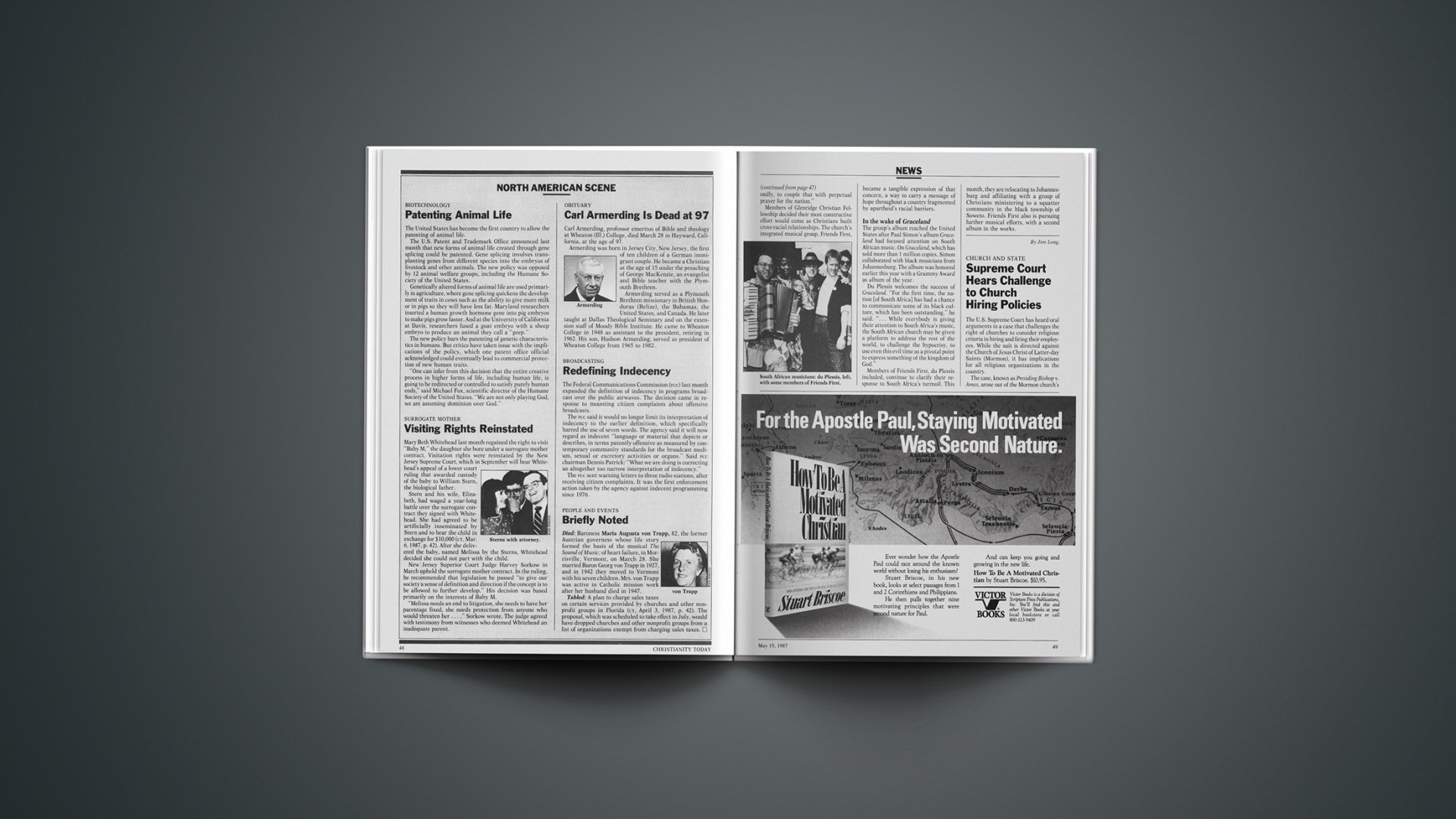The U.S. Supreme Court has heard oral arguments in a case that challenges the right of churches to consider religious criteria in hiring and firing their employees. While the suit is directed against the Church of Jesus Christ of Latter-day Saints (Mormon), it has implications for all religious organizations in the country.
The case, known as Presiding Bishop v. Amos, arose out of the Mormon church’s policy of employing only qualified (temple-recommended) Mormons for jobs in church-owned nonprofit activities. This policy was invoked to fire Frank Mayson, a building engineer in a Mormon-owned public gymnasium in Salt Lake City. He had refused to tithe, attend services, and otherwise satisfy qualifications for temple-recommend status.
Mayson filed suit, claiming his discharge violated the federal Civil Rights Act of 1964, which bars employers from discriminating on the basis of race, color, religion, sex, or national origin. In defending its action, the Mormon church cited a 1972 exemption to the Civil Rights Act, which allows religious organizations to consider a worker’s religion in making employment decisions.
A federal trial court in Utah struck down this statutory exemption as violating constitutional rights of religious freedom when applied to “secular” activities engaged in by religious organizations. That court ruled the Mormon church could consider religious qualifications only in employment decisions involving religious activities or jobs. Because Mayson’s job was not religious in nature, the trial court ruled that his firing violated the Civil Rights Act.
The Mormon church appealed to the Supreme Court, where its oral arguments were presented by former U.S. Solicitor General Rex E. Lee. “The First Amendment prohibits the federal government from promoting religion,” Lee stated. “It does not prohibit religious organizations from promoting religion.” Since the challenged exemption merely allows churches to promote religion through their hiring policies, Lee argued, it is constitutional. He pointed out that Congress chose not to bar churches from considering religion in filling nonreligious jobs.
Mayson’s attorney, David B. Watkiss of the Utah chapter of the American Civil Liberties Union, argued that the Mormon church used its hiring policy to coerce certain inactive Mormons to tithe and attend church while retaining other non-Mormon employees, including a Catholic squash coach.
The U.S. Justice Department backed the Mormon church’s position, as did a number of religious organizations, including the National Association of Evangelicals, the Baptist Joint Committee on Public Affairs, the Christian College Coalition, the U.S. Catholic Conference, the Lutheran Church-Missouri Synod, the General Conference of Seventh-day Adventists, and the American Jewish Congress. A decision in the case is not expected until next month.
by Ed Larson










